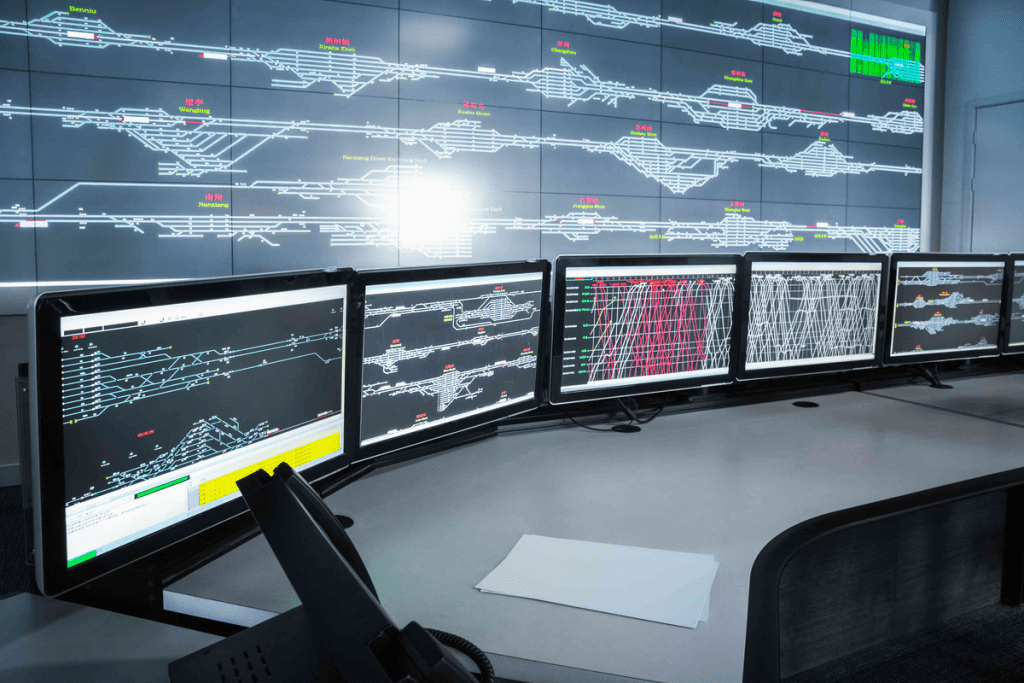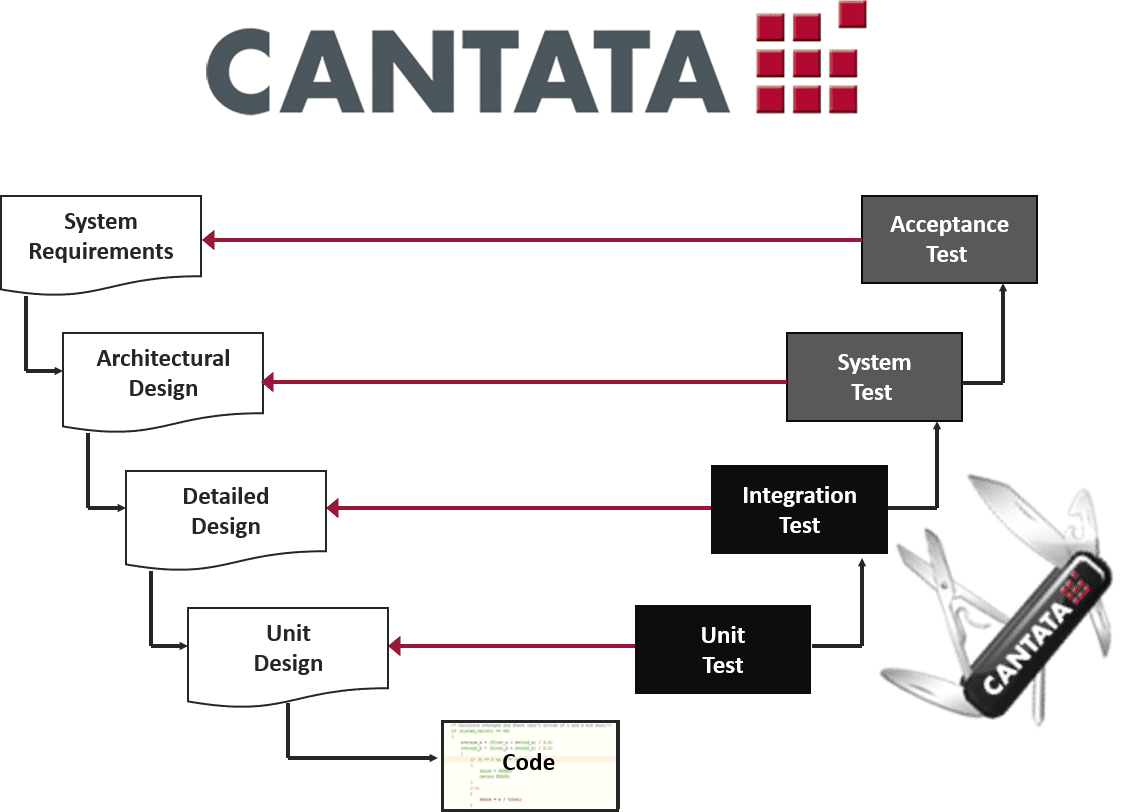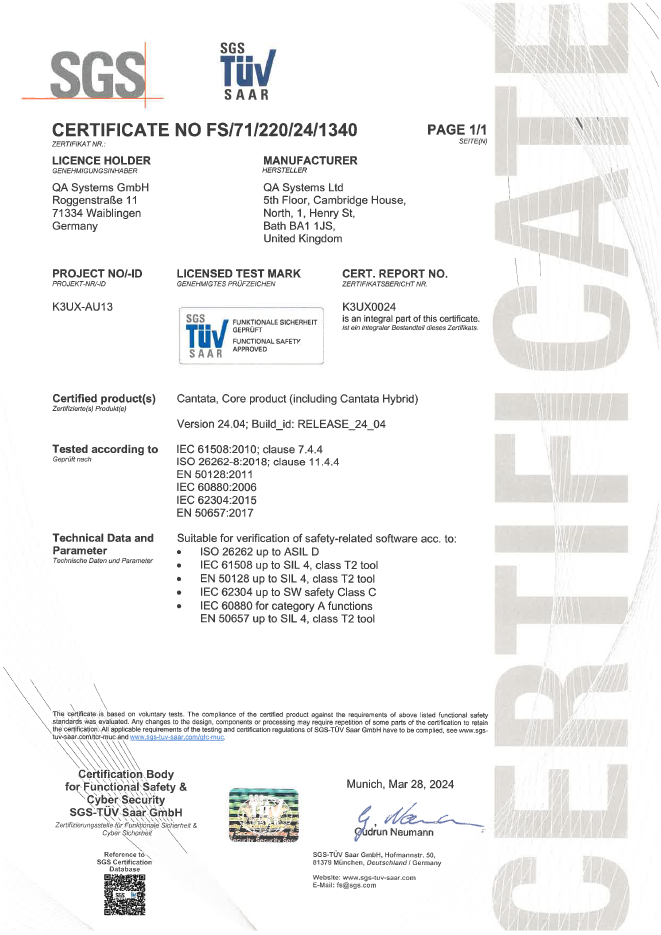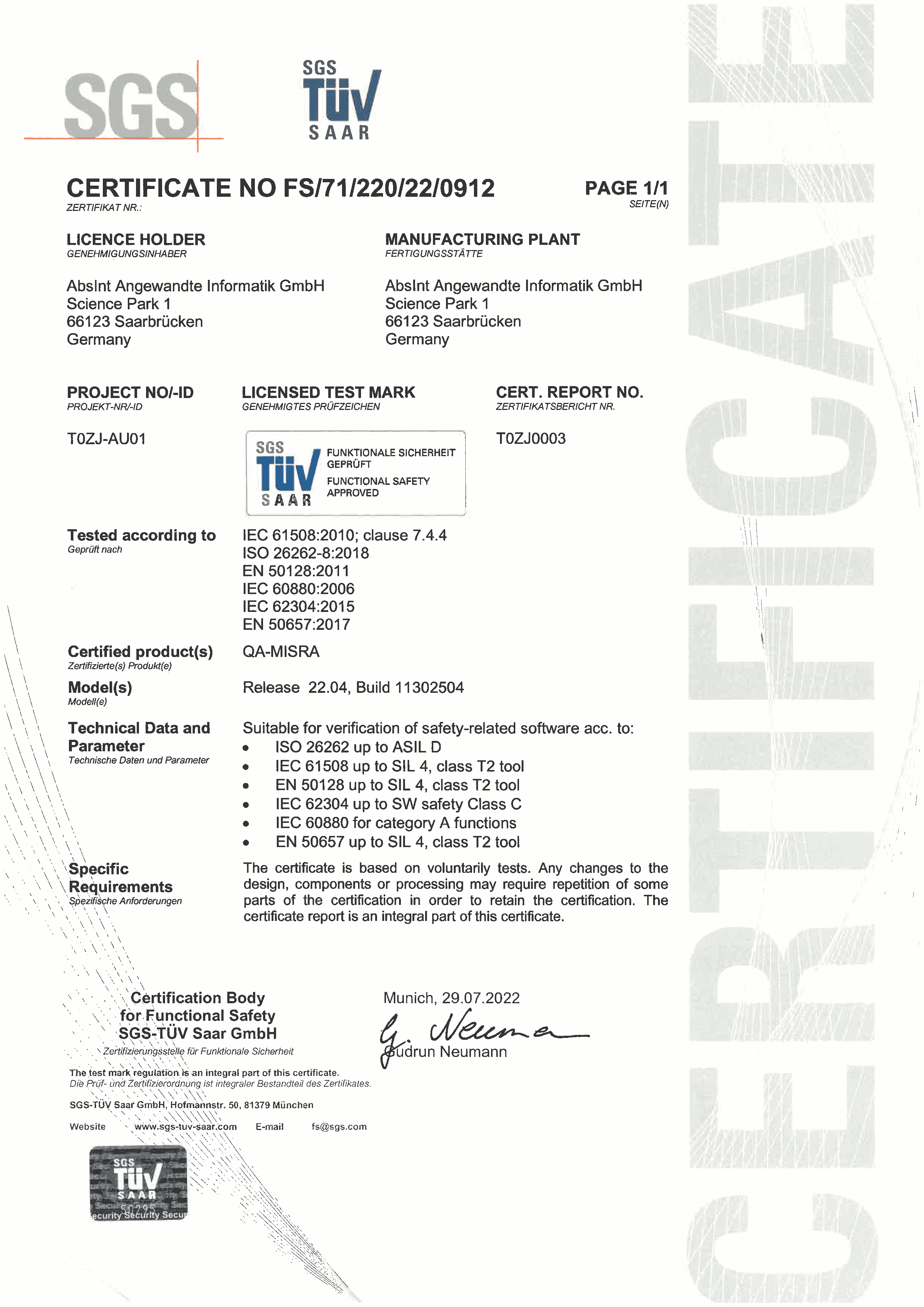EN 50128 / EN 50657
Software Safety Standards for the Railway Industry
EN 50128 and EN 50657 are crucial in the railway industry. These standards, originating from the European Committee for Electrotechnical Standardisation (CENELEC), ensure the development of reliable and safe software systems for railway control and protection.
EN 50128 Standard for Software Integrity Levels: The software safety standard EN 50128, also known as IEC 62279, outlines the requirements for assigning Software Integrity Levels (SIL) to systems with safety implications. SIL values range from 0 to 4, depending on the criticality of the system. This standard provides comprehensive guidelines for rail software development activities associated with each SIL, and the generation of evidence to demonstrate completion.
EN 50657:2017 Standard for Rolling Stock Applications: In the domain of rolling stock applications, the EN 50657:2017 standard specifies the process and technical requirements for software development in programmable electronic systems. Adapted from EN 50128:2011, this standard shares commonalities, including the definition of Software Integrity Levels (SIL). It ensures that software in rolling stock applications meets the necessary safety and reliability standards.

By adhering to the guidelines of EN 50128 and EN 50657, the railway industry prioritizes software safety and compliance. These standards establish the framework for software development activities, ensuring that safety-critical systems meet the required SIL.
The rigorous implementation of these standards enhances the reliability and integrity of software systems used in railway control, protection, and rolling stock applications.
Software Testing Tools for Compliance with EN 50128 / EN 50657
QA Systems helps organizations to accelerate compliance with EN 50128/50657 through automated static analysis, unit testing, source code analysis, and other comprehensive testing methods.
STATIC ANALYSIS
Static Analysis for EN 50128 / 50657 Compliance
While Static Analysis is not Mandatory at any EN 50128 / 50657 SIL, it is the only practical way in which a coding standard (which is Mandatory for SIL 3 and 4) can be enforced.
Within the standard, Phase 7.5 (Software Component Implementation and Testing) together with Annex A (Criteria for the Selection of Techniques and Measures) address software development, placing requirements on the initiation of software development; software architectural design and software unit design and implementation. This is the main area where the Static Analysis tools are used; however, some of the information generated from the tools can also be used to assist in later stages, particularly testing.
Please contact us for more information on the static analysis tool QA-MISRA for EN50128 / 50657.
The EN 50128 / 50657 static analysis recommendations by SIL and how these are supported by QA-MISRA and Astrée are summarised in our “QA-MISRA Safety Manual”.
Start a free trial of QA-MISRA to evaluate your code against MISRA, AUTOSAR, CERT C/C++, CWE and other coding standards to ensure automated compliance with ISO EN 50128 / 50657.

Unit and Integration Testing for EN 50128 / 50657 compliance
EN 50128 / 50657 recommends unit and integration testing. Cantata enables developers to verify EN 50128 / 50657 compliant C and C++ code on host native and embedded target platforms.
Cantata helps accelerate compliance with the standard’s software testing requirements by automating:
Please contact us for more information on Cantata for EN 50128 / 50657.
The EN 50128 / 50657 software testing recommendations by SIL and how these are supported by Cantata are summarised in our White Papers “Cantata Standard Briefing EN 50128:2011” and “Cantata Standard Briefing EN 50657:2017″.
Start a free trial to evaluate Cantata using your code.

Tool Certification & Qualification
EN 50128 and EN 50657 (section 6.1.4.2) stipulate that testing tools, whether hardware or software, must be demonstrated as suitable for their intended purpose. QA Systems offers Cantata, a dynamic testing tool that has been certified by SGS-TÜV GmbH, an independent third-party certification body for functional safety accredited by Deutsche Akkreditierungsstelle GmbH (DAkkS). Cantata holds a classification of T2, making it suitable for developing safety-related software according to EN 50128:2011 and 50657:2017, up to Software Safety Integrity Level (SW-SIL) 4.
In the case of our static analysis tool, QA-MISRA, our Qualification Support Kit (QSK) performs a comprehensive tool qualification verification test suite on the installed tool configuration. The QSK automatically generates the necessary reports for EN 50128/50657 tool qualification.
To facilitate our customers’ path to certification, we offer tool kits designed specifically for EN 50128/50657 compliance. These kits encompass everything required to demonstrate that Cantata and QA-MISRA instill the necessary confidence in the use of software tools, aligning with EN 50128/50657 recommendations. Furthermore, they provide extensive and detailed guidance on utilizing the tools to fulfill the software verification activities mandated by EN 50128/50657.
For additional information regarding these certification kits, please don’t hesitate to reach out to us.










